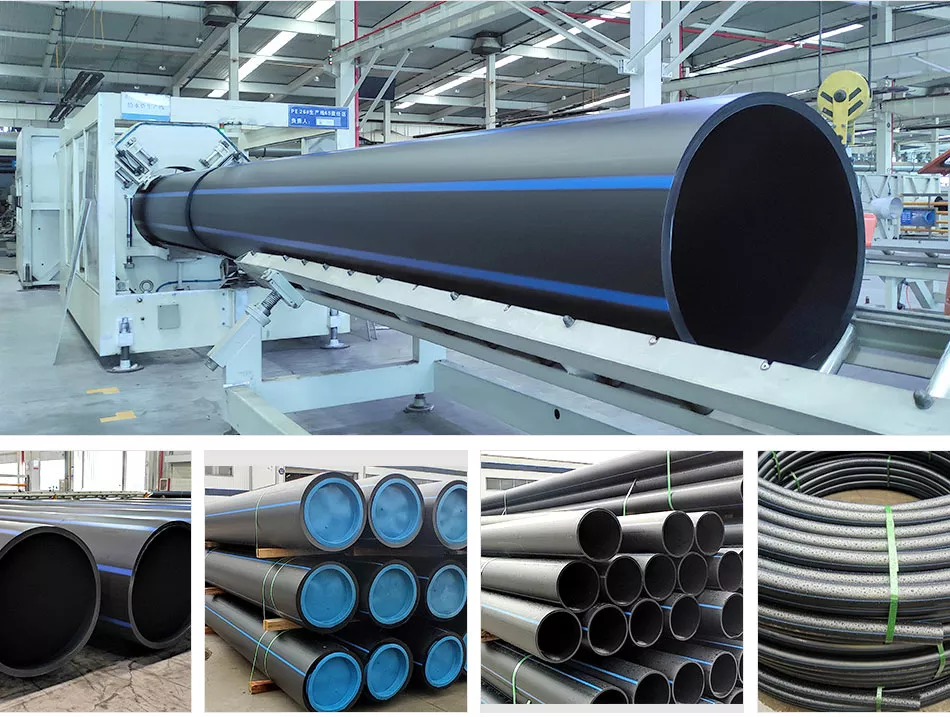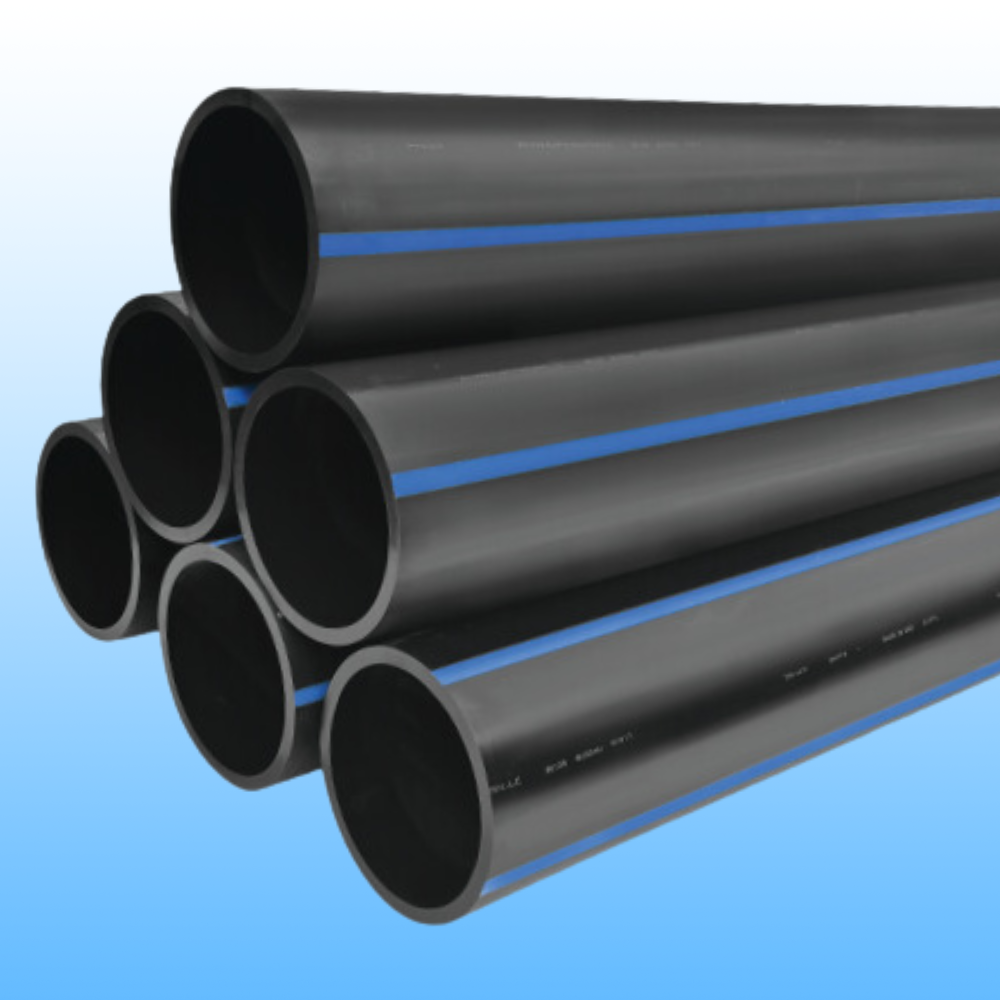Where to Source Midland TX HDPE Pipe Fittings in Stock for Oilfield Success
A Comprehensive Guide to the Numerous Uses HDPE Pipeline in Construction and Market
HDPE pipelines have actually become an essential part in modern building and commercial applications. Their distinct homes, such as resistance to rust and light-weight design, make them ideal for a vast array of uses. From water systems to farming irrigation, HDPE pipes offer remedies that improve performance and sustainability. Recognizing their varied applications is important for professionals seeking to enhance framework. What certain advantages do these pipelines give each industry?
Water and Circulation Solutions
Water supply and circulation systems are critical components of urban framework, usually depending on high-density polyethylene (HDPE) pipes for their sturdiness and efficiency. These systems transportation drinkable water from treatment facilities to consumers, ensuring access and security. HDPE pipes are preferred for their resistance to deterioration, chemicals, and extreme temperatures, which boosts their durability and decreases upkeep expenses. In addition, their lightweight nature enables for simpler installment and transportation, making them excellent for various city and rural applications.
The flexibility of HDPE pipes allows them to be installed in tight rooms and around obstacles, decreasing the need for extensive excavation (hdpe pipe fittings Midland TX). Their smooth interior surface minimizes rubbing losses, boosting water flow rates. As cities continue to grow, the demand for reliable water supply systems enhances, placing HDPE pipes as a lasting remedy for modern facilities jobs. Their proven track record makes them a favored option among engineers and metropolitan coordinators alike
Wastewater Monitoring and Therapy
Reliable wastewater monitoring and therapy are vital for preserving public health and wellness and ecological high quality. HDPE pipelines play a crucial duty in this procedure because of their toughness, resistance to deterioration, and ability to withstand harsh chemicals. These pipelines are frequently made use of in different applications, including sewage systems, stormwater drain, and wastewater treatment centers. Their lightweight nature assists in less complicated installment and transport, decreasing labor expenses and time.
Furthermore, HDPE pipelines have a smooth indoor surface that decreases friction loss, advertising efficient flow prices. They are additionally less vulnerable to leakages and failures compared to conventional products, guaranteeing that contaminants are included efficiently. Additionally, their adaptability permits adaptability in various dirt conditions, making them suitable for diverse ecological settings. As industries progressively prioritize sustainable techniques, making use of HDPE pipelines in wastewater administration systems aligns with goals for decreasing ecological impact and enhancing resource healing.
Agricultural Watering Solutions
In agricultural settings, effective irrigation remedies are crucial for enhancing crop yields and managing water sources. HDPE (High-Density Polyethylene) pipes play a vital role in modern irrigation systems because of their longevity, flexibility, and resistance to deterioration. Their ability to endure high stress makes them ideal for both surface area and subsurface irrigation applications, making certain uniform water circulation across areas.
Farmers can use HDPE pipelines in drip irrigation systems, which provide water straight to plant roots, decreasing wastefulness and advertising healthy and balanced growth. Additionally, these pipelines are lightweight and easy to mount, lowering labor expenses and installation time. Their lengthy lifespan and reduced maintenance needs further boost their appeal in farming methods.
Moreover, HDPE pipelines are eco-friendly, as they can be reused and do not leach unsafe chemicals into the soil. This makes them a lasting option for farmers intending to embrace environment-friendly agricultural techniques while optimizing performance.
Industrial Applications and Processes
Flexibility is a hallmark of HDPE pipelines, making them crucial in numerous commercial applications and procedures. These pipelines are extensively made use of in chemical processing industries because of their excellent resistance to a variety of harsh compounds. HDPE's light-weight nature, incorporated with high tensile stamina, permits very easy setup and long-lasting performance in demanding settings.
In the oil and gas field, HDPE pipes play an important role in transporting hydrocarbons and gases, many thanks to their durability and versatility - Texas hdpe pipe manufacturer. Additionally, they are employed in elbow pipe mining operations for the transport of slurry and other materials, where typical piping systems may fall short
HDPE pipes are significantly made use of in making centers for water supply lines and wastewater management. Their capability to endure severe temperature levels and stress makes them ideal for a range of industrial processes. Generally, HDPE pipes contribute substantially to efficiency and security across diverse industrial applications.
Stormwater Monitoring and Water Drainage Systems
Stormwater administration and drainage systems are essential parts in metropolitan framework, made to take care of excess rains and decrease flooding risks. High-density polyethylene (HDPE) pipes are significantly utilized in these systems due to their sturdiness, adaptability, and resistance to deterioration. These pipes efficiently deliver stormwater far from inhabited areas, minimizing surface area drainage and avoiding waterlogging.
HDPE's light-weight nature facilitates simpler installment, decreasing labor expenses and construction time. In addition, its resistance to chemicals and environmental stressors warranties long life and dependability in different climates. In addition to conventional drain applications, HDPE pipes are additionally used in innovative solutions such as green framework, that includes rain gardens and permeable sidewalks.

Regularly Asked Concerns
How Does HDPE Pipe Contrast to PVC Pipeline in Price?
Generally, HDPE pipeline tends to be much more pricey than PVC pipeline due to its boosted sturdiness and adaptability. Long-term price considerations, such as maintenance and life-span, may favor HDPE in specific applications.
What Is the Life-span of HDPE Pipes Under Varying Problems?
HDPE pipes generally have a life expectancy of 50 to 100 years, depending on ecological conditions, installation methods, and usage. Factors such as temperature level, dirt type, and direct exposure to chemicals can greatly influence their longevity.
Can HDPE Pipeline Be Recycled After Use?
Yes, HDPE pipes can be reused after use. The recycling process includes thawing down the material, allowing it to be repurposed right into new products, thus promoting sustainability and minimizing ecological effect related to plastic waste.
Exist Any Certain Installment Difficulties With HDPE Pipelines?
Installment challenges with HDPE pipes consist of correct jointing methods, making certain sufficient trench conditions, and managing thermal growth. Furthermore, proficient labor is called for to take care of customized tools, which can complicate the setup procedure in various atmospheres.

What Accreditations Should I Look for When Getting HDPE Pipelines?
When acquiring HDPE pipes, one ought to search for qualifications such as ASTM, AASHTO, and ISO, which validate quality and compliance with industry requirements, ensuring toughness and efficiency in different applications. - American Plastics HDPE Pipe Manufacturing